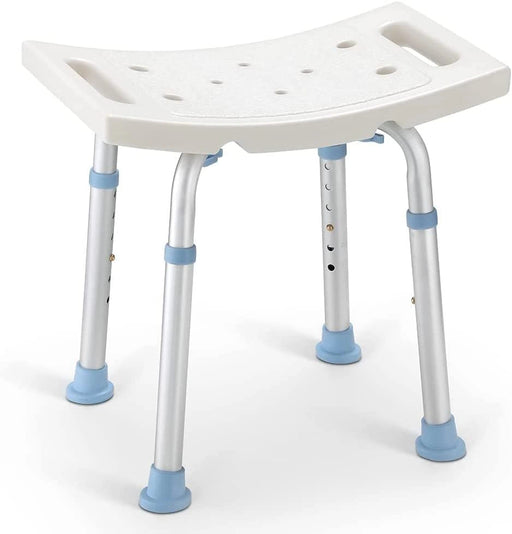How To Stay Healthy After 60?
The decade of your 60s is a significant one. It's possible that you're thinking about putting your working life in the past and retiring. It's possible that you'll get more time to devote to taking care of yourself. While all the transition might be both exhilarating and frightening, there is no better moment than now to begin a new life.
This improved life will be able to place an even greater emphasis on your physical health and a general sense of well-being. Your golden years should not be just about relaxing but rather about achieving your optimal level of health and striving toward a longer lifespan during which you are healthy and happy. The following list of 8 things is intended to help you started.
1. Paying attention to your physical well-being
Even if you aren't successful at reducing your body mass index or your weight, the study has shown that regular exercise could still make you live a longer and healthier life. There are numerous different beginning points to choose from. You may try to incorporate little bouts of regular exercise across the day, or you could designate certain periods each week to devote to working out.
There are a lot of things you can do that don't cost a lot of money, like going for a light walk with your rollator or doing yoga. Once you've been more involved, rather than experiencing weariness, you would begin to feel rejuvenated and recharged after your workouts. The trick is to discover different strategies to engage yourself and keep moving.
2. Make wise food choices
You could help prevent yourself from various health concerns associated with aging and even enhance your cognitive function by adopting sensible choices about the food you eat. As is the case with physical activity, a healthy diet is about more than just body weight. It might be difficult to decide what to eat these days because there are diverse regimens to choose from. According to the Dietary Guidelines for Americans, a balanced diet should consist primarily of fruit and veggies, grains, good fats, and proteins.

3. Have a good sleep
A healthy lifestyle includes obtaining the necessary amount of sleep each night. There is a correlation between having adequate sleep and having less insulin resistance and fewer heart failures and obesity problems. A good night's sleep could not only boost your inventiveness and ability to make decisions, but it could even lower your blood glucose levels.
There are a variety of actions you could take to improve the quality of your sleep, such as maintaining a consistent routine during your sleeping hours. Make an effort to go to bed and wake up at approximately the same hour every day. It is best to avoid taking naps later in the day if you want to prevent staying up late at night. If you work out during the day but not too near bedtime, it may also assist you to sleep well. According to the findings of certain studies, psychological treatments such as meditation training may also be able to enhance the condition of one's sleep.
4. Quit smoking
Studies show that smoking cessation is beneficial to one's health at any age, regardless of how long one has been smoking. This is true even if you are above the age of 60 and have been smoking for several half a century. Putting down the cigarette could add years of your life expectancy. According to the findings of a research that included about 200,000 participants, those elderly individuals who gave up smoking under the age of 55 had a life expectancy that was almost 6 years longer than those who keep smoking. And 4 additional years were added to the lives of adults individuals who gave up smoking under the age of 64. It is always good to quit smoking and enjoy the rewards of improved lung function, increased energy levels, decreased medical expenses, and overall better health.

5. Less alcohol
Alcohol intake should be avoided entirely or kept to a minimum by elderly individuals, as it is for all adults. According to investigations, growing older would bring about social and physical shifts that render elderly folks more prone to the improper usage of alcohol as well as increased vulnerability to the effects of alcohol. All cells in our body, especially the brain, can be negatively impacted by alcohol addiction or excessive drinking.
It is essential to be conscious of how much alcohol you are consuming as well as the potential risks associated with it. Communicate with your general care physician or a clinical psychologist if you or a member of your family requires assistance with the misuse of alcohol. You might also look for a support network that is geared at helping senior citizens who have problems with alcohol addiction.
6. Visit the doctor often
Frequent visits to the doctor for checkups and preventive care are quite necessary for maintaining good health as one gets older. Research performed in 2021 revealed that individuals who went in for frequent checkups helped their doctors detect chronic illnesses at an earlier stage, which in turn helped them minimize diseases like high blood pressure. Screenings at periodic times could detect diseases and disorders of which you might not be conscious, such as diabetes, cancers, and cardiovascular problems. If you wait to seek medical assistance until you are feeling symptoms, you run the risk of missing out on the opportunity to have your physician detect a condition in its early phases, when it might be easiest to cure.
7. Mind your mental health
Your total well-being and the enjoyment of your golden years depend heavily on your mental health which has an impact on your thoughts, feelings, actions, decisions, and relationships with other people. As people get older, they are more likely to experience abnormalities in their bodies, including hearing and visual loss, cognitive impairment, infirmity, and difficulty moving around, all of which could make it challenging to preserve social relationships. Because of this, elderly individuals have a greater chance of becoming isolated and lonely.
Maintaining regular contact with family and friends, either in person or on the telephone, has the potential to benefit both your moods and your health as a whole. Attend a course to learn new things or to improve a skill you obtained earlier, and you'll have the opportunity to encounter new peers.

8. Deal with stress
Stress is a normal and inevitable component of life, and it can appear in a variety of ways. According to studies conducted, chronic stress could alter the brain, have an impact on memory, and raise the likelihood of getting Alzheimer's disease or dementia. Long-term stress has been linked to a variety of medical conditions, including gastrointestinal issues, headaches, and difficulty sleeping, and might lead to or exacerbate these conditions.
Finding techniques to reduce stress and promote emotional maturity could be beneficial to maintaining a healthy lifestyle as one gets older. You may find that practicing meditation, staying active, and engaging in things that bring you pleasure are helpful ways to handle your stress. Keeping a journal can also assist you in recognizing and confronting unproductive and unfavorable thinking patterns.
The Ending
Even though many disadvantaged physical transformations are an inevitable consequence of becoming older, they wouldn't have to make you less active. In addition, there are many things, as we mentioned above, that you could do to safeguard your body and ensure that it remains in the best condition in your golden years.
Recommend Products
-
 Sale
Sale
Standard - 300LBS Capacity Shower Stool
Original price $51.99From Original price $29.99Original price $51.99Current price $29.99From $29.99Current price $29.99OasisSpace Medical Square Shower Stool for Bathtub OasisSpace Square Shower Stool for Bathtub is approved as the highest standard(FDA) for medical...
View full detailsSaleOriginal price $51.99From Original price $29.99Original price $51.99Current price $29.99From $29.99Current price $29.99


